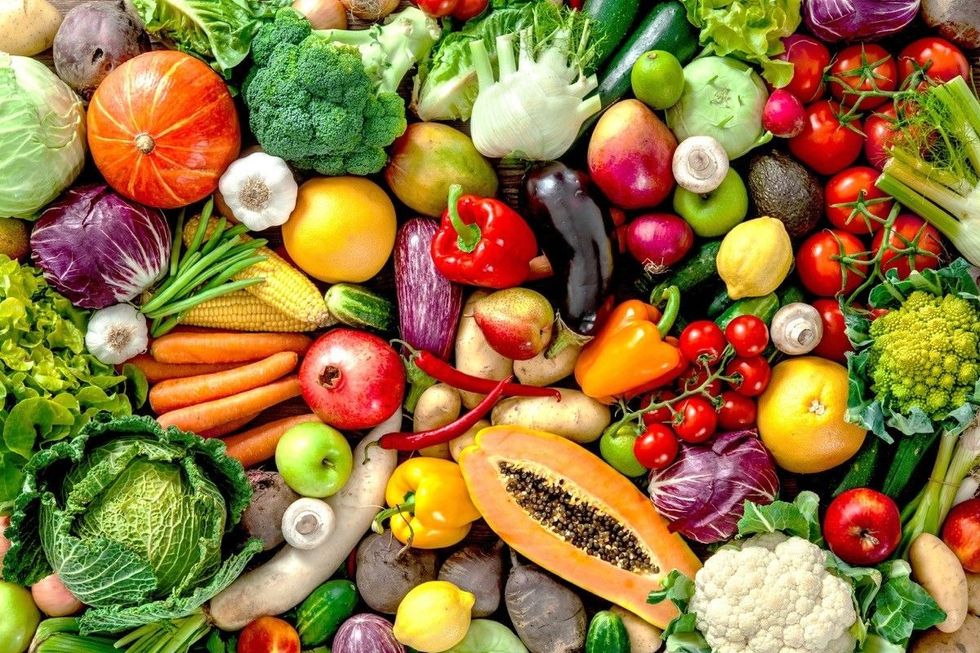Inflammation gets a bad rap, but in its most basic form, it’s a natural and necessary response that helps your body heal after injury or infection. “It’s a much-needed process to promote health and wellness while removing the injurious source,” explains Charlie Abraham, MD, MBA, CHCQM, FACP, Chief Medical Officer at Dignity St. Bernardine Medical Center. When this happens, your immune system sends out inflammatory cells to defend against germs and toxins, triggering mild pain or swelling in the affected area or symptoms like a fever.
However, prolonged or “chronic” inflammation rightfully deserves its bad rap. In fact, chronic inflammation is behind many major health issues, including cancer, heart disease, Type 2 diabetes, kidney disease, arthritis, and more. A recent study from the University of Florida found that 34.6% of U.S. adults have systemic inflammation, a serious condition in which the body’s immune system is constantly trying to defend itself. This kind of excessive inflammation—whether it lasts a short or long period—should be controlled as much as possible, says Dr. Abraham.
That’s why doctors suggest keeping your inflammation in check—and one powerful way to do so is by eating anti-inflammatory foods. From antioxidant-rich berries to omega-3 loaded fish, these nutritious choices not only reduce inflammation, they also boost your overall wellness. Whether you’re looking to improve joint health, manage chronic conditions, or simply invest in a more vibrant future, incorporating these superfoods into your diet could be a game-changer. Read on to learn why these foods matter, how they work in your body, and practical tips on adding them to your daily meals for long-lasting benefits.
RELATED: These 3 Foods Could Be the Secret to a Healthier Liver, Doctors Say
How Foods Can Fight Inflammation
Eat More Fruits and VegetablesShutterstock
You know by now that your diet plays a huge role in your overall well-being. But, you might not know that foods contain many vital nutrients and essentials we need, including antioxidants, which help neutralize free radicals in your body and reduce inflammation, says Megan Mescher-Cox, DO, a doctor at Dignity Health St. John.
That said, eating too much red meat, sugar, processed foods, wheat, fried dishes, soda, and other unhealthy choices can exacerbate inflammation.
Unfortunately, “in the average American diet, a humongous amount of pro-inflammatory foods are ingested, and a very small amount of anti-inflammatory foods are eaten,” says Dr. Cox. By making more informed dietary choices, you can take control of your health and fight inflammation.
The 5 Best Foods to Fight Inflammation: 1. Omega-3 Fatty Acids

Omega-3 fatty acids play a crucial role in reducing and managing chronic inflammation. These essential fats, which the body cannot produce on its own, help regulate inflammatory processes by influencing the production of anti-inflammatory molecules called resolvins and protectins.
“Diets rich in omega-3 fatty acids, such as fish, nuts, and flaxseed, should be considered when faced with a high inflammatory state,” Dr. Abraham says. “The main theory is that they change the structure of the cell membrane, which in turn, increases inflammatory-resolving genes.”
Research supports this, such as a 2023 study published in the Journal of Clinical Lipidology, which found that a higher intake of omega-3 fatty acids is associated with reduced levels of systemic inflammation.
RELATED: 10 Surprising Benefits of Taking Fish Oil Every Day
2. Fruits… And Especially Berries

Fruit is a refreshing and delicious source of anti-inflammatory power. That’s because many fruits are full of vitamin C, antioxidants, and other essential minerals.
“Vitamin C is a potent antioxidant that helps neutralize inflammation,” Dr. Cox says. “Berries are especially beneficial with large amounts of antioxidants and fiber. Fiber is critical for your gut bacteria, promoting the growth of bacteria that produce a protective layer inside your gut to help block inflammatory substances from being absorbed into your body.”
3. Green, Leafy Vegetables

Eating an array of green, leafy vegetables (like kale, microgreens, spinach, cabbage, romaine, and more) is another great way to fight inflammation naturally because these foods contain many nutrients and antioxidants.
“The colors of vegetables indicate different phytochemicals that help protect the cells of your body against free radicals, which cause inflammation and can even damage your DNA,” Dr. Abraham explains. “Green, leafy vegetables work by removing insulting byproducts from the cells, which helps fight inflammation.”
RELATED: This “Powerhouse” Vegetable Is the Healthiest, CDC Says
4. Turmeric

Certain herbs and spices like turmeric can help reduce inflammation, according to Dr. Abraham.
“Turmeric contains curcumin, which is known for its antioxidant and anti-inflammatory properties. It essentially helps reduce inflammatory mediators.”
Numerous studies have highlighted turmeric’s potential in lowering inflammation.
This is one of the reasons why turmeric tea and supplements are so popular these days amongst the health-conscious. It can also be added to smoothies, curries, or soups.
RELATED: 7 Surprising Benefits of Taking a Turmeric Supplement Every Day
5. Green Tea

Good news for tea drinkers: it can help calm down inflammation!
“Green tea has one of the highest concentrations of antioxidants in any beverage,” Dr. Cox says. “Consumption of green tea is also associated with lower amounts of chronic disease, including heart disease and diabetes.”
Studies have shown that regular consumption of green tea can lower levels of certain pro-inflammatory markers. Rich in polyphenols such as catechins—particularly epigallocatechin gallate (EGCG)—green tea helps reduce oxidative stress and modulate the body’s inflammatory responses.
By incorporating these healthy foods into your daily diet, you can help keep chronic inflammation at bay while also protecting your overall health and wellness now and in the future.
Content shared from bestlifeonline.com.

